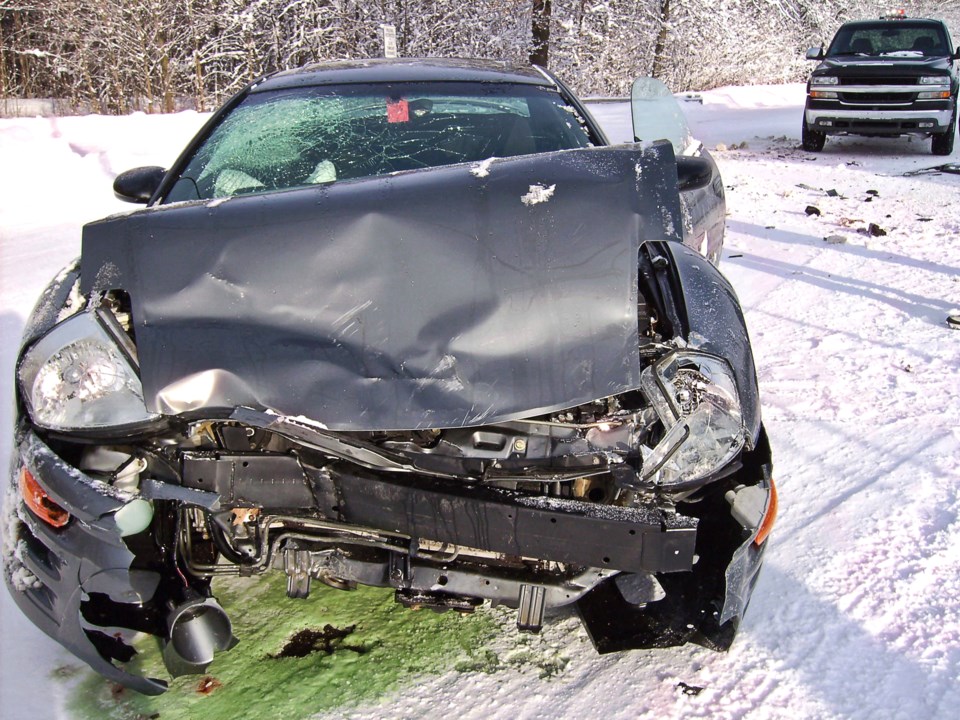Athabasca RCMP Corp. Dale Bereza has several tips to ensure safe driving including slowing down as you approach an intersection, checking for traffic before proceeding, obeying all traffic signs and signals, using your turn signal and remembering pedestrians have the right of way in marked and unmarked crosswalks.
“We want to encourage drivers to maintain safe driving habits on all types of roads, including intersections, in both urban and rural areas. There are several road users at intersections — vehicles, pedestrians and cyclists — all coming from different directions and traveling various speeds,” Bereza said. “That's why it's very important to pay close attention to your driving and other and others to avoid collisions.”
Making a full and complete stop is critical in avoiding intersection accidents Bereza said.
“A lot of times people come to a stop sign, and they go, ‘Okay, I stopped, I'm good to go’ but if they cause that accident, they're still failing to proceed safely after the stop,” he explained. “Driver error is often the cause of collisions at intersections. Basically, it's slow down as you approach an intersection, be prepared to stop, pause and check all traffic before proceeding when lights turn green or if you're at a at a stop sign. Obey all traffic signs signals, make a complete stop at stop signs (and) make use of your signals.”
Law enforcement changed the terminology from Motor Vehicle Accident (MVA) to Motor Vehicle Collision (MVC) in 2002 in recognition of driver error.
"We changed our acronym from MVA – it used to be motor vehicle accidents – to motor vehicle collisions or MVCs because there's no such thing as an accident,” Bereza said. “Every accident is avoidable, every time hundred percent of the time.”
In a press release Supt. Gary Graham with Alberta RCMP Traffic Services stated driver error is the leading cause of accident in Alberta.
“According to Alberta Transportation, over 85 per cent of collisions involve a driver error. The most common driver errors identified in casualty collisions at intersections include left turns, stop sign violations and disobeying a traffic signal,” said Graham. “Intersection safety is a shared responsibility. Together, we have the ability to reduce the number of collisions and save lives.”
Pedestrians are also responsible for intersection safety and should not presume they are safe even in marked crosswalks.
“You should always be prepared for the unexpected at intersections: pay attention to pedestrians, changing lights, slippery road conditions and other drivers before proceeding through an intersection,” said Alberta Sherrifs Supt. Rick Gardner. “Intersection safety entails consistently watching the road and other drivers and pedestrians to avoid dangerous collisions.”
Tips for pedestrians include checking traffic before crossing, never jaywalking, using designated crosswalks and signals and not using headphone, cell phones or other electronic devices while crossing.
“If somebody stops in a hurry whether it be in town or whatever the case may be, pedestrians have the right of way at all signalized intersections whether the crosswalk is marked or unmarked,” Bereza stated. “There is a responsibility on pedestrian as well, you want to make sure that you're crossing safely; don't assume that person sees you.”
Tips for drivers include leaving room between you and the vehicle in front of you in case of sudden stops, not speeding through yellow lights, driving for the weather conditions and avoiding fatigue.
“Winter in Alberta means icy roads, reduced visibility and limited daylight, so we urge drivers to be mindful of the road and weather conditions. In this cold weather things ice up quite quickly; if there is a little bit of snow, it'll tend to ice up from the traffic a lot quicker,” Bereza stressed. “Give yourself more time to get where you need to go, dress warm and make sure you have winter gear in your vehicle.
“Another big thing is fatigue – it’s very similar to impaired driving. Fatigue affects the ability to drive. It slows your reaction time decreases your awareness and impairs judgment. If you're a tired driver, you're basically an impaired driver so make sure you include rest stops.”
The press release added Alberta RCMP will continue to work with Alberta Sheriffs and other law enforcement and safety partners to ensure Albertans make the right driving decisions. RCMP traffic safety tips can also be found on Facebook @RCMPinAlberta and Twitter @RCMPAlberta.



